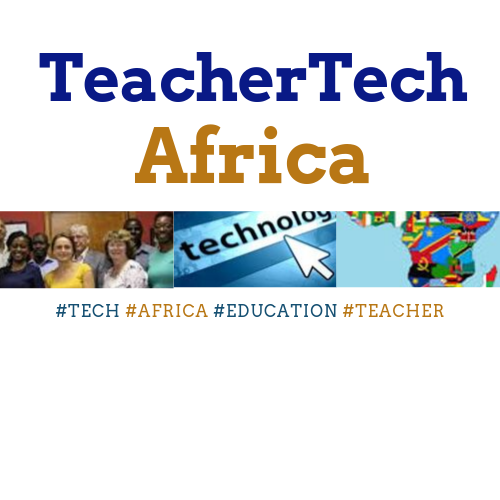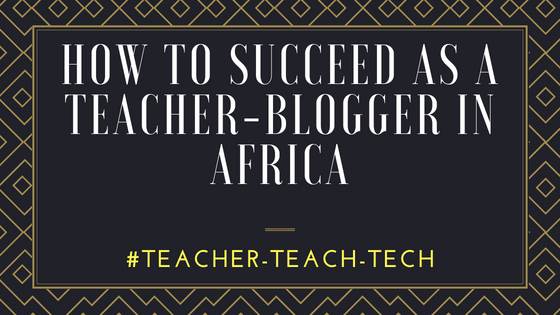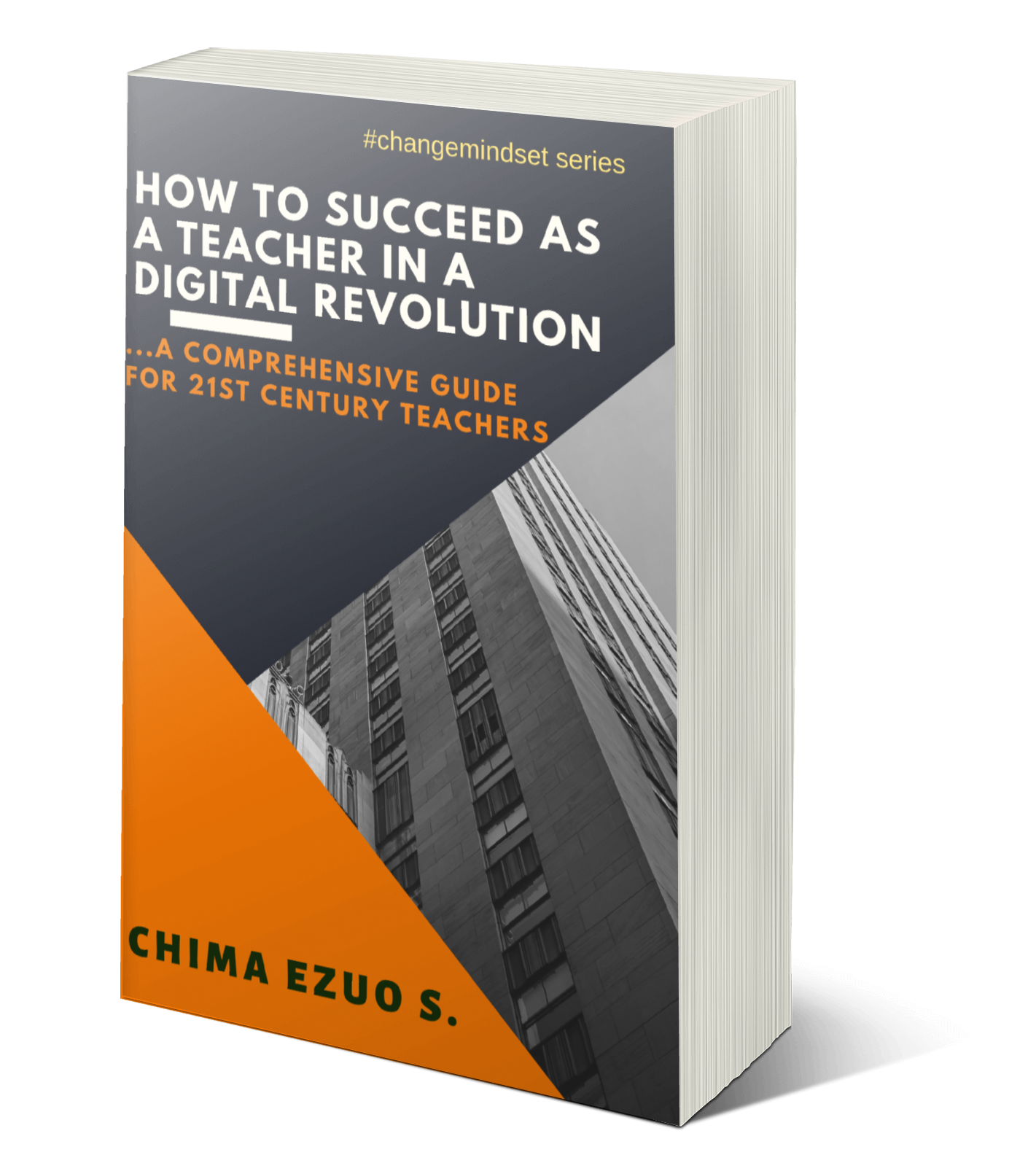technology
04:03
How to Succeed as a Teacher-Blogger in Africa
One of the easiest ways teachers can develop their writing skills as well as make a lasting mark in their world is through blogging.
There are thousands of educational
blogs today owned by teachers. Many of them are already a hotspot for
academic research and engagement.
Regrettably, most of these blog sites are owned and run by
non-Africans. We have few Africans who are blogging
in education niche. This means the niche is still very much untapped and open
to African teachers to take advantage.
I
encourage African teachers to go into blogging, making Africa their primary
target of interest.
In this post, I show you 5 ways every African teacher can
make it as a blogger-teacher here in Africa.
#1. Just start
According to the popular
saying, ‘the taste of the pudding is in the eating.
I am not yet a guru
blogger. But I remember I developed the interest of blogging for a very long
time now because of my drive for writing. When I started, it was an entire
mess, but at least today, I have improved.
And you will be
surprised, I learnt on my own. Like the popular saying goes, ‘Practice makes
for perfection’.
If you’ve never done it
before, it means you’re starting as a newbie blogger. I have to advise you to
take it easy. Never try to swallow an elephant at one shot.
You wouldn’t want to
spend unnecessary money starting a blog with a customized domain (something
like www.yourname.com), where you would need to pay for a domain name and hosting
etc. So, I suggest you start on a free platform.
There are many of them
out there, but Word Press (www.wordpress.com) and Blogger (www.blogger.com) remains the best for you, but I
will recommend blogger.
#2. Capture a regional interest
Try to narrow your
writing to the African context, with global relevance…
Being a teacher, your
chosen niche should at best focus on education and learning. This is important
because this is where your readers feel you have expertise and they would
readily listen to your expert advice.
But beyond your chosen
niche, it would be more relevant to your target audience if you will capture a
regional interest in your writing. Of course, your writing must have a global
relevance, but capturing a regional interest in your writing makes it more
practical and engaging.
It helps readers see your
work as something done out of firsthand experience, not as a doctoral
dissertation.
#3. Be original
Content rules when it
comes to blogging. And one of the enemies of quality content is plagiarism
(copying other author’s original work without authorization). And be sure no
one wants to authorize you to continually use his original work in your blog.
Of course, you can copy
others’ works and give credit to the original source. But the problem is that
when you do that, you’ve only succeeded in increasing their page rank with
search engines while decreasing yours. Besides, your readers would rather visit
the original source than repeating visits on your sites.
Simply put, you need to be original.
Try to write first by
experience and practical knowledge. You can as well get a lot of information
from others’ works. After all, no man is an island of knowledge. But the wit
here is the ability to tinker and rearrange the items, make relevant additions
and subtraction, infusing your own ideas and so on. And you’re already having
an original piece.
Mind you, if you’re
mentally lazy, you can’t do it!
#4. Join a community
You need to network with
others. And the easiest way to do it is by joining an online community of those
who are doing what you’ve started doing.
Be socially engaged-
relevant Facebook groups/pages, Twitter, Linkedin, forums and other helpful
communities where you share ideas as well as ask questions. If you are always
having a meaningful contribution in these communities, I bet you that is one of
the easiest ways to market yourself.
We have a Facebook Group,AfricanTeachers’ Network where you can collaborate with others for mutual
benefit.
#5. Give it all you’ve got
Blogging is not a lazy
man’s job. Even if you’re not blogging full time, it is nonetheless expected of
you to be passionate with what you’re doing with blogging. This is the only way
your effort pays.
Do you know that even
search engines such as Google usually watch out to see a blogger’s commitment
and consistency to providing useful and original contents over a period of time
before pushing up that site to its top search position?
You may not be a
20-post-a-day blogger; but being consistent at posting 2 or 3 times every week
is enough testimony that you’re in to do something reasonable, and the world
will be ready to patronize you.
The moment you start
blogging, you’re a newbie at first. But don’t remain at that newbie state; keep
learning on how to improve on blog contents, designs, promotion and all that.
Simply put, give it all
that you’ve got, and you will reap good in the long run.
To learn more, join our class at
#TeacherTeachTech…
From an original article on our
sister blog, The African Teacher


















